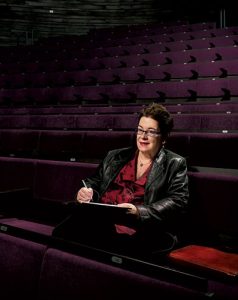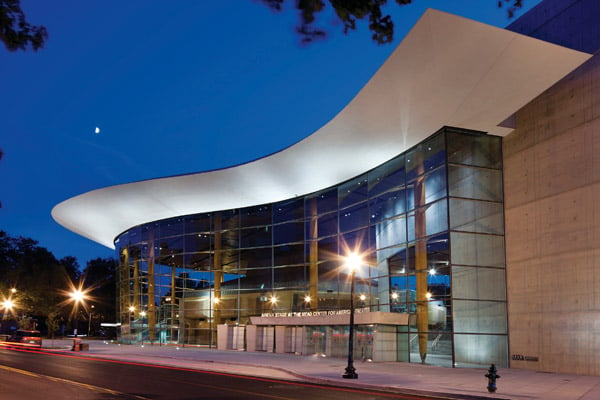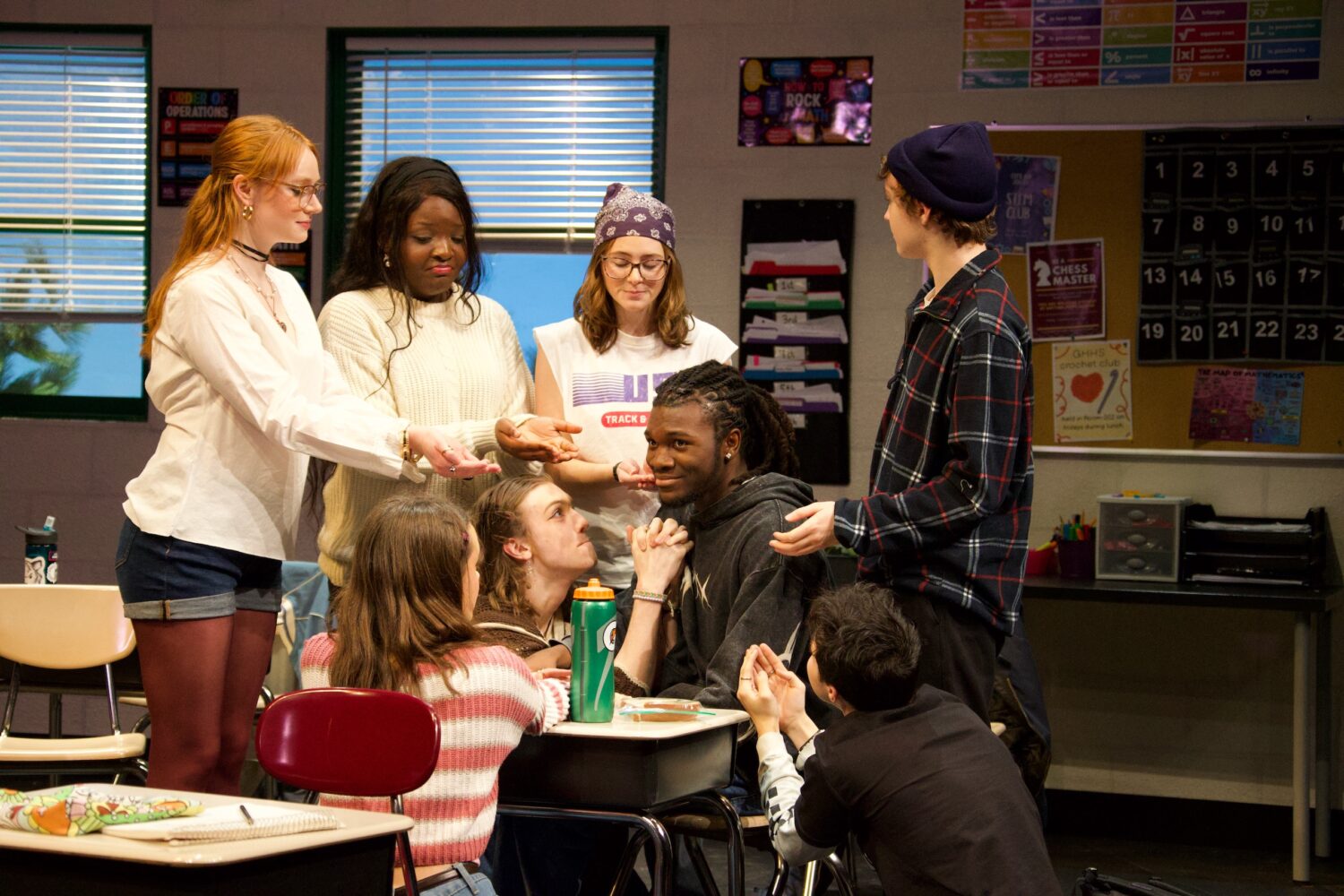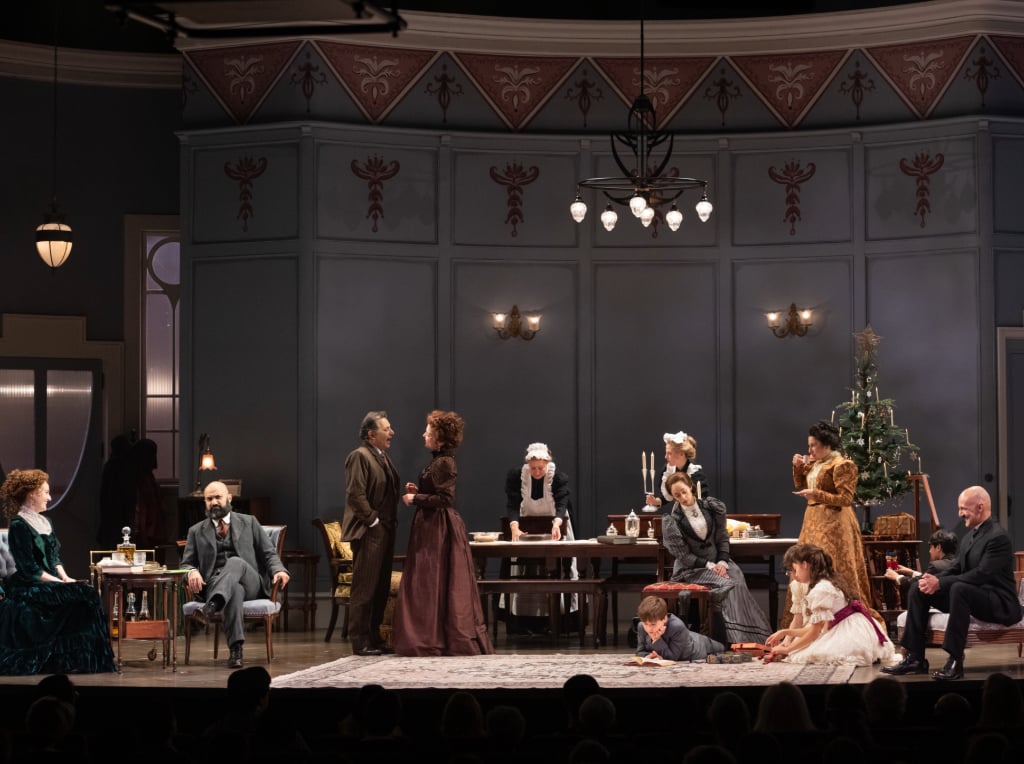Though Arena Stage closed its doors in March, artistic director Molly Smith has been hustling. During lockdown, her team has completed two films, started virtual salon chats, hosted social-issue talks with political scholars on Zoom, and organized master classes in acting, dancing, and singing with Broadway stars. On top of it all, this week Arena became one of the first area theaters to announce its return: In a live Facebook event, Smith laid out plans to reopen with small cabaret nights in September, leading up to a season (re)start in January 2021.
“We’ve had a safety committee for a number of years and they’re meeting now all the time,” Smith tells Washingtonian. “Everything changes daily, so they are ensuring that, as we bring our staff, our audience, and our artists back, we are in the right space to really ensure the safety and the comfort of everyone.”
The theater is hoping that by January the city will be in Phase 3 of the reopening process, which would permit up to 250 people at an indoor event. Though still in the early stages of preparation, Arena is committing to distanced seating with a limited capacity and thorough cleaning of the theaters after each performance. Tickets and programs will all be digital rather than on paper. The team is also talking to actors’ unions to arrange live-performance streaming for ticket-holders who might not feel comfortable attending in person.

Five plays are slated for the 2021 partial season, opening with Celia and Fidel, a work about Cuban revolutionary Celia Sánchez’s influence on Fidel Castro that in March had opened for just one night before shuttering due to Covid-19. Following that run will be Toni Stone, about the first woman to play baseball in the Negro Leagues; Seven Guitars, which was cancelled this spring but will return in April 2021 to conclude Arena’s August Wilson festival; the world premiere of the musical American Prophet: Frederick Douglass In His Own Words; and Life After, another musical that follows a 16-year-old as she uncovers what really happened the night of her father’s death. Unlike a regular season, these performances will not overlap, which will reduce the number of guests coming in and out.
Arena’s doors will officially reopen to the public in September with a handful of cabaret events (dates to be announced) that will be in the café area, possibly extending onto the terrace as well, with socially distanced tables that Smith says can safely accommodate 50 to 70 people.
“We’re following innovations that are happening even in the area of masks, like the kinds of masks that might be worn by staff members or the masks actors might wear during rehearsal,” says Smith. “With rehearsal protocol, might the first week of rehearsal be done on Zoom before we bring everybody into the theater? We’re thinking through all of those areas as well, and, of course, we’re ensuring that dressing rooms are socially distanced from each other—same thing with our green rooms—so we’re taking everybody into account.”
Though reopening preparations are complicated, they won’t slow down Arena’s creative arm. Smith also announced this week that they are developing Arena’s third film, The 51st State, a docudrama about the Black Lives Matter protests in DC that will tie into a conversation about DC statehood. You can still watch the first two films for free online: May 22, 2020 looks at a day in quarantine through the eyes of ten Washingtonians and Inside Voices is a collection of video performances from 120 student artists responding to the pandemic. In the fall, Arena will also host a virtual play festival called Flash Acts, featuring 20 works about isolation from American and Russian playwrights in collaboration with Georgetown University and singer Mary McBride’s Forum for Cultural Engagement.



















